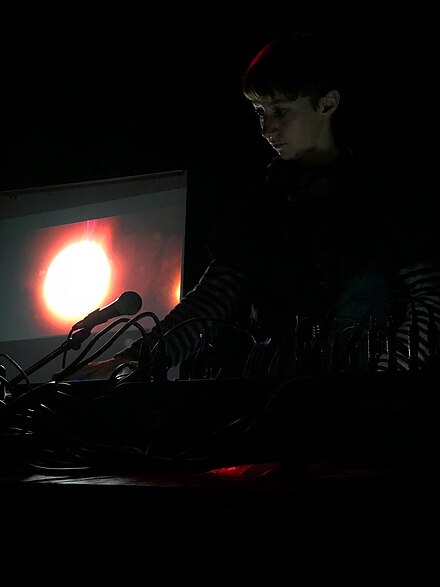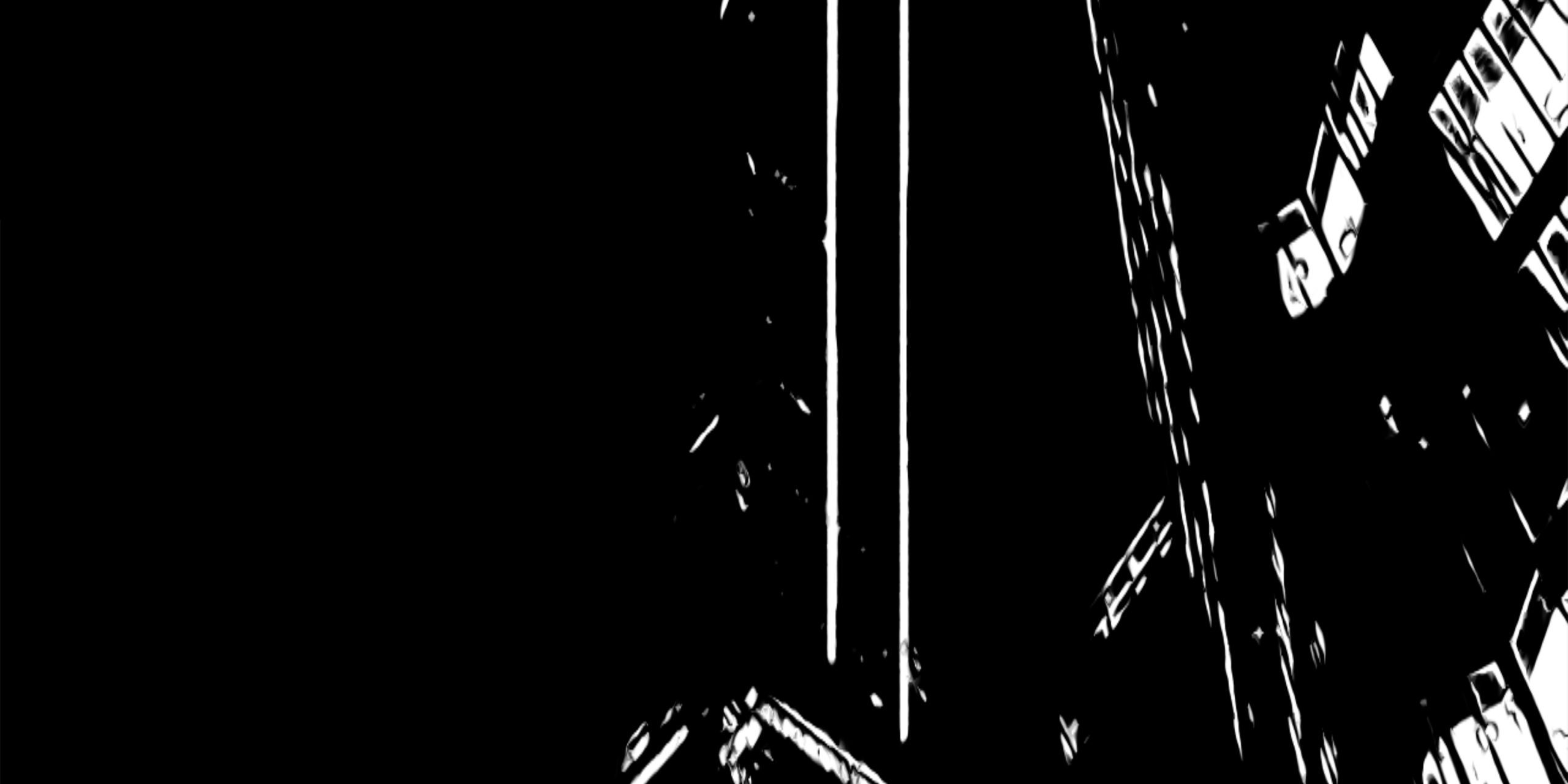Written by Candace Fernandez
For Estonian-born artist Alina Astrova, music is a channel for abstraction. Releasing solo tracks under the alias’ Lolina and Inga Copeland since 2014, as well as collaborating with Dean Blunt on Hyper Williams since 2011, the nonlocality of Astrova’s musical identity is mirrored in the indistinction of her sound. While her third album release under the musical project Lolina titled Unrecognisable maintains a creative commitment to melodic distortion, the oblique sonics of this work maintains a linearity in storyline that contrasts with the thematic incoherence of her prior albums The Smoke and Live in Paris. While the third album’s title overtly affirms itself as sonically indistinguishable, it dually situates the record within a sub-project of Lolina known as ‘Unrecognisable.’
Understood as the third chapter of the “Unrecognisable” project, this album follows the opening output of the multidisciplinary work’s first chapter initially released through the form of an interactive graphic novel, as well as the improvisational live show that concocts the second chapter. As the premise of the project’s sections are working from a conceptual storyline where physical buildings double as combat weapons in war between the public collective and the government, the first chapter’s emergence of the character’s Geneva Heat and Paris Hell reveal these individuals as advocates for the public collective, as they belong to a political group of resistance understood as Unrecognisable.

As this third album seeks to personify Geneva Heat and Paris Hell by allowing the listener to peer into the topographical meanderings of these Unrecognisable members, the album’s capacity to evoke a meaning beyond the limitations of narrative speaks to Astrova’s musical power. While a stability in storyline is explicitly affirmed, the record’s capability to stand on its own, and contemplate the interior tension between a human’s will to live in the industrial enchantment of the city and the self-imposed numbness that belies their capacity to survive it is a feat that reveals Lolina’s sonic incongruity as powerfully subversive, for in drawing the listener nearer to the imaginative, it brings them closer to the human.
This sonic duality is strung through many of the album’s tracks through a dualism in voice. With tracks as “Paris Hell Rising,” “Night Flight” and “W.I.L.,” polyphony utilizes aural differentiation to personify both Geneva Heat and Paris Hell. While this polyvocality pushes the project’s storyline forward, it dually individuates the piece from any locatable outsource. To listeners uninformed of Astrova’s work, the identity of Geneva Heat and Paris Hell collapse into non-clarity through vocal multiplicity and remerge as blurred figures, a materialization that echoes the anonymity of the individual in the city. Further, this lack of identification somehow humanizes them in a deeper way than characterization ever could, as it retrieves them from the nonrecognition of the cityscape and grants them figuration through emotional observation instead; an interior recognition they fail to grant even to themselves.
The listener bears witness to the unemotionality that pervades these vocally multifarious songs during tracks as “Night Flight.” As an unsettling cacophony of electronic rhythms are sung over by emotionally detached vocals that surface counter to rhythm, Lolina reminds listeners to “do the right thing, and you’ll pay the price,” a perception that contributes to the track’s unnerving tone and intensifies when she recounts how “the city is the perpetuator, coming for you,” a reality of inescapability that will inevitably “find you, you can’t hide.” While the anticipatory fear of this song drives Lolina to assume harm in everyone, this dehumanized perception is granted logicality through its variance in vocals. As Lolina’s verbal reflections mirror the normative perception of various strangers, they dually grant recognition to the emotional dimension of a stranger’s interiority. In recognizing that the city is ‘coming’ for them, this impending union with the industrial extends beyond the physical landscape, and alludes to how this dehumanized perception of a city’s populace as a survival tactic within metropolis spaces will inevitably be internalized by the subject themselves; an internalization that can only but inflict the individual with an impulse for self-objectification, and inspire them to perceive their own interior life through a dehumanized lens.
The disjointed beats of much of the album’s sonics contributes to this failure for human recognition within one’s own interiority by means of the cityscape. Similar to how one’s paranoid perception of reality and the truth of that reality are often disconnected, this emotional distortion becomes deepened on tracks as “Meet the Devil” and “Unrecognisable.” As tempos are broken, slowed down, and run over by a singularity in high pitched vocals, these track’s inhabitation for soprano expressions reminiscent of much of Lolina’s prior work alludes to a prospective failure to internally authenticate for Lolina. Within “Unrecognisable,” the confessional simplicity of this song’s lyrics contrasts with the musical concordance that serves to disrupt its vocal linearity.

As the sonics unfetter into a volume that would drown out Lolina’s voice were it only an octave higher, her words come through so softly, they demand the listener’s total attention to understand. As Lolina reflects on her struggle to confront the reality of her inner life and acknowledges how “sometimes its easier to say things you don’t believe,” she surrenders herself to her own fear of emotional injury by means of self-confrontation, and instead desires for someone to “lie to [her]” about both their perception of her and the reality of the world at large, for stomaching that “it will be okay” is more palliative that the emotional commotion truth can only but yield. While Lolina’s vocal pleadings inhabit a normative syntax that is easily understood, the erratic soundscape that the track’s lyrics are paired with echoes the complexity of interior life that Lolina will never escape, despite her attempts to. The immensity in volume and fragmentation that overrides Lolina’s vocals further demonstrates how in attempting to evade the reality of her interior life, whether that be through social demands for conformity, an idealization for an individuated image or the internal struggles that arise from living amidst anonymous floods of people, the pain of opting for numbness over authentic recognition only makes her pain louder, and intensifies the inescapability of hurt she longs so helplessly to be deceived out of.

While Lolina fails to find a resolution outside of her pain, Astrova offers an emotional anesthetic through collectivity. With “Dejavu,” upbeat auditory compositions contrast with the abstracted acoustics that drape much of Lolina’s vocals. As she pairs this sanguine melody with visual recounts of “boys in the club hanging out” and “girls by the door making out,” human unity void of normative imposition becomes a pathway towards softening the turmoil of her inner life. The musical coherence expressed in this song mirrors the emotional coherence that Lolina discovers when she finds someone to “hold [her]” and “kiss [her],” if only momentarily, for “its something about this sound” and the pulse of human desire that allows her inner turmoil to soften. The linearity of this track’s sonics allude to how in connecting with others within a city space as a bar or club, Lolina becomes more connected with herself through a recognition and exploration of her interior desires, a reconnection so powerful it is able to realign the track’s sonics and make them momentarily cohere.
While this album is based around a fictional narrative that seeks to characterize Paris Hell and Geneva Heat, the subversive duality it allows by granting insight into Lolina herself reveals Astrova’s third chapter of “Unrecognisable” as a sonic means towards poetic processing as much as an exploration of dystopian worlds. By refusing the dehumanization of the cityscape through a recognition for the emotional dimension of the anonymous through the alias of Lolina, Astrova utilizes indistinction as a discursive pathway that reconnects her with her interiority through connecting strangers with each other. Beyond the spheres of Lolina and the “Unrecognisable” project, it seems Astrova may have crafted a third world through this album; a place where abstraction is the only true definition we have for understanding human life, where movement and disfigurement somehow make us recognizable.




